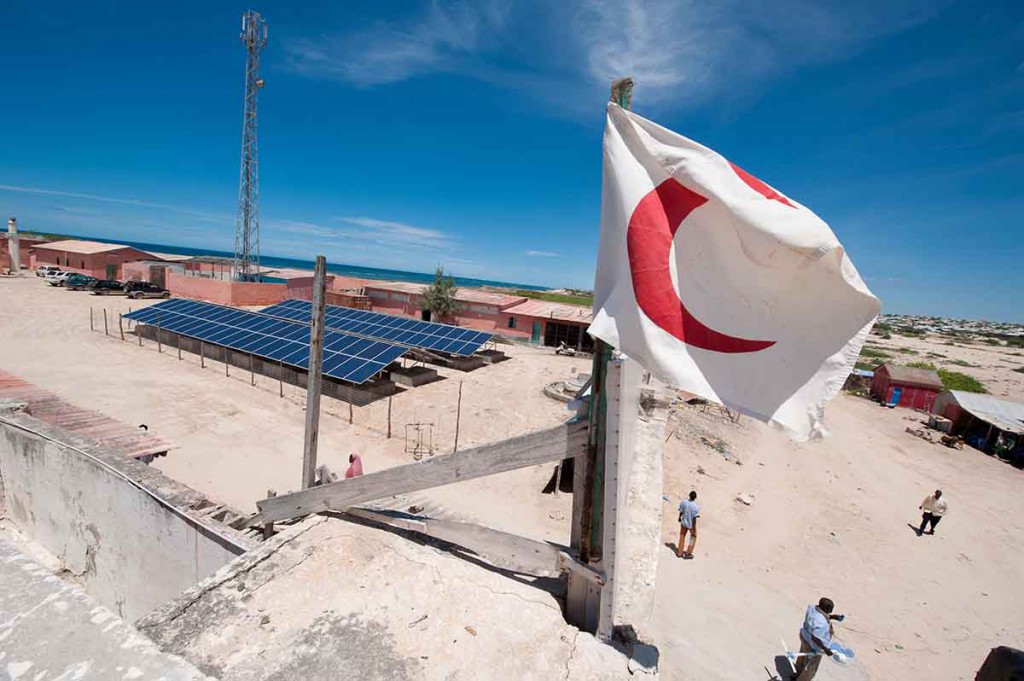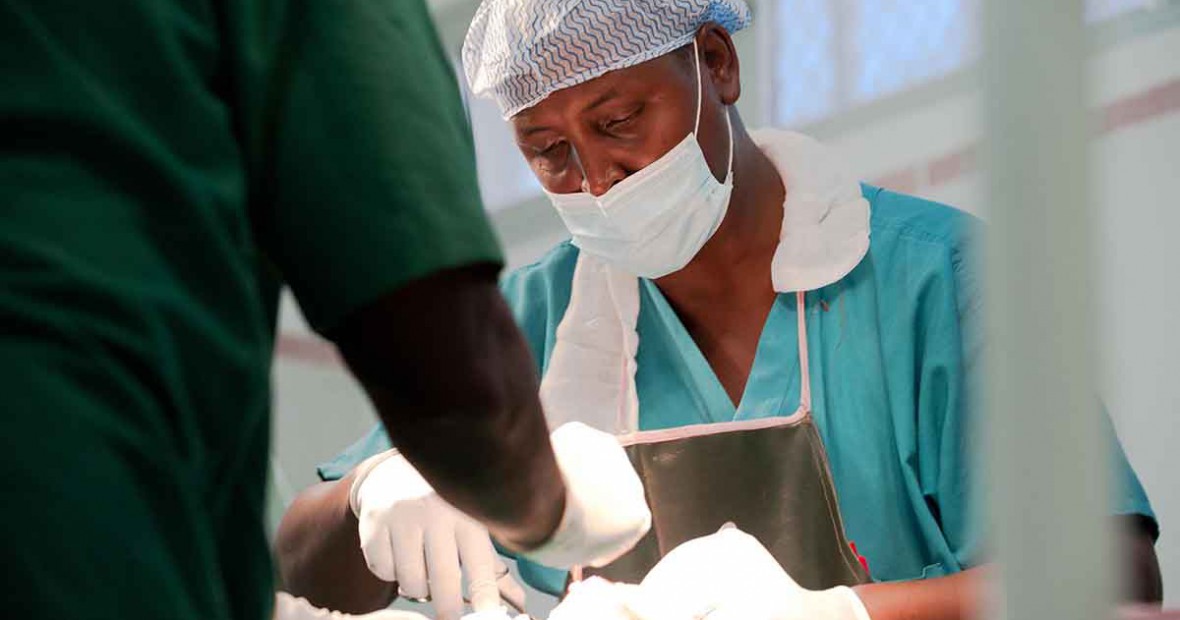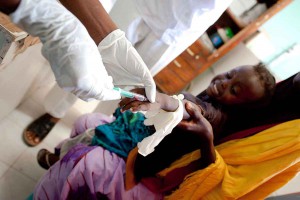Dr. Ahmed Mohamed, alias Dr. Tajir, began working at Keysaney hospital in 1992, a year after the fall of the Said Barre regime ushered in a period of civil war in Somalia. The Mogadishu hospital is run by the Somali Red Crescent Society (SRCS) and has assisted tens of thousands of patients wounded in armed conflict.
In the twenty-three years since, Dr. Tajir, now 56, has risen to the rank of Chief Surgeon and become synonymous with the hospital.
The persistent fighting of the mid-nineties has subsided but there is lingering conflict in parts of Somalia. This includes sporadic gunfire attacks and car bombs in Mogadishu with many of the resulting victims being treated at Keysaney.
In honour of World Red Cross Day on May 8, Dr. Tajir spared some time to tell us about himself:
Q: What made you become a surgeon?
A: As a young boy, I always had the passion to be the greatest. Being born in a nomad family, I was fortunate to have parents who supported my education. It was not a priority. One memorable moment of my childhood years is visiting a relative who had suffered gunshot wounds in hospital. Despite the doctor’s efforts, he succumbed to his injuries. This sad scenario gave me the motivation to study medicine. I was determined to be a good surgeon and saves lives. Somalia needed doctors with an understanding of the people and culture.
Q: Two decades of service is a long time. What keeps you going?
A: The spate of attacks and bombings in Somalia has left thousands wounded in dire need of medical help. There was a shortage of medical doctors and I chose to remain behind and serve the community. The faces of patients who stream into Keysaney hospital are the drive. They keep me strong and focused as I want to take part in changing their lives.
Q: The SRCS has been supporting the hospital for the last 23 years. What is your take on this?
A: With these many years working in this hospital, I feel more of a SRCS staff member than anything else. The organization aims to alleviate suffering of the people by providing free quality health care. SRCS has enabled the hospital to work independently, serving all communities irrespective of their clan, religion or political affiliations.
Q: How do you balance family life with your busy profession?
A: My family supports me in the work that I do. They have been behind me for the last 25 years and any success attributed to me is derived through their support. When at the hospital I am a doctor, while at home, I am a father, an uncle and a husband.
Q: What do you take pride in most after all these years?
A: I have had a few success stories with patients but one that moved me most was saving the life of an expectant woman who had gunshot wounds around her waist. The fetus could not be saved, fortunately the mother survived and got her second chance at life. Today she operates a shop in town and I am humbled whenever I see her actively engaged in her day to day activities.
Q: With security an issue, how do stay operational with the constant fear of attacks?
A: We hardly see any incidents on the hospital as we are neutral and impartial. We are here to provide medical aid to those in need regardless of their affiliations. This position has enabled us to remain operational given the situation. Everyone knows Keysaney hospital belongs to the Somali community and is run by an independent body.
Q: What are your greatest challenges?
A: There are challenges mostly related to emergency response capacity. We are short on qualified surgeons and our blood stock levels are very low. We see a lot of patients who require both and this proves a challenge. Despite the shortcomings, we try our best to respond to emergencies and save lives.
Keysaney Hospital facts & figures:

The Red Cresecent symbol hoisted atop Keysaney Hospital, a health facilty run by the Somalia Red Cresecent (SRCS) in Mogadishu, Somalia. The hospital is run by the SRCS with the support of the International Committee of the Red Cross and Red Crescent (ICRC). © ICRC/Pedram Yazdi
Since 1992, the hospital has admitted nearly 180,000 patients and has assisted more than 84,000 weapon-wounded patients.
The new operation theatre built by ICRC in 2014 has improved the facility’s capacity to respond to emergencies
Keysaney hospital data for 2014;
-555 weapon wounded admissions
-2633 total admissions
-2081 surgical operations
-5795 admissions to emergency department (triage)
-6272 outpatient appointments



